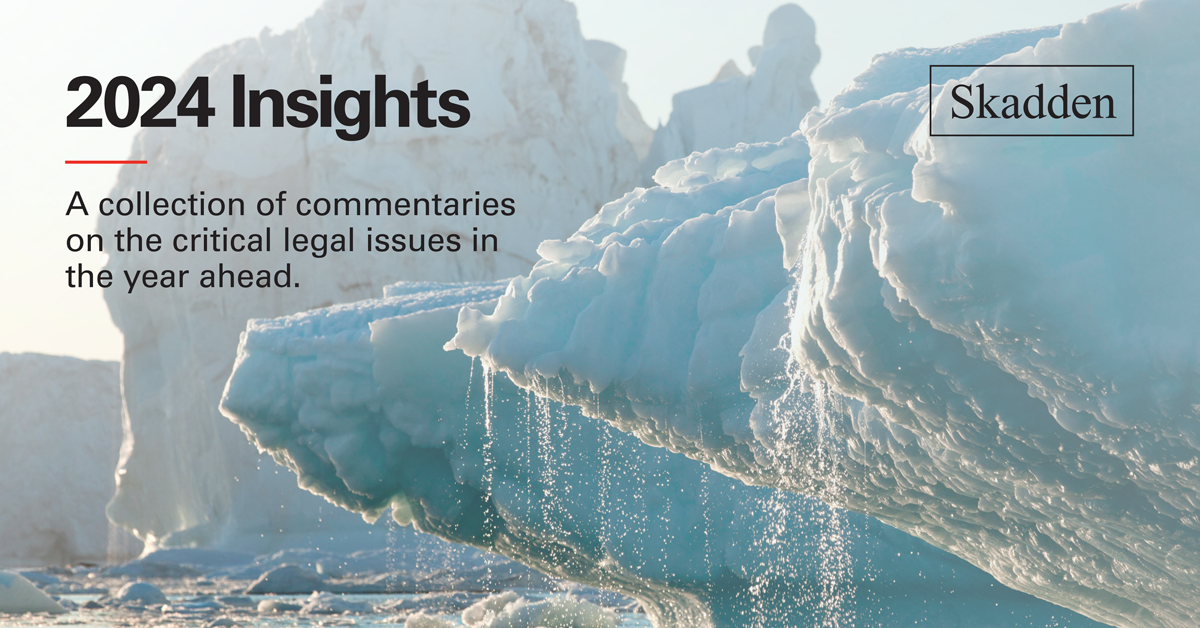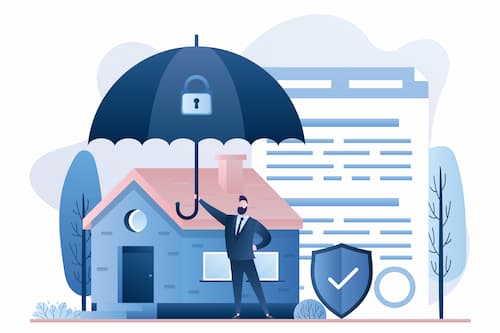- Joined
- Jun 3, 2020
- Messages
- 32,957
- Reaction score
- 11,080
- Gender
- Male
- Political Leaning
- Independent
Every state does that.Not only that, but California also put a cap on what insurance companies could charge for premiums.
Every state does that.Not only that, but California also put a cap on what insurance companies could charge for premiums.
I find this post, particularly the cite within, a rather interesting microcosm of some of the thinking of people, particularly our friends from the right that get their information from fact-free political porn sites.My query to Grok: What was the main reason that State Farm officials gave for pulling out of the California homeowners market?

The Real Reason State Farm Won’t Sell Home Insurance in California Anymore
“Climate shocks are making parts of America uninsurable,” the New York Times observed following State Farm’s announcement. While climate change might be in the zeitgeist, there are better explanations for State Farm’s exit.fee.org
State Farm officials cited several key reasons for pulling out of the California homeowners market, with the primary focus being the financial unsustainability of continuing operations under the state's conditions. In their official statements, they highlighted "historic increases in construction costs outpacing inflation, rapidly growing catastrophe exposure, and a challenging reinsurance market" as the main drivers. These factors, combined with outdated insurance regulations in California—such as those stemming from Proposition 103, which limits their ability to adjust rates quickly to match rising risks—made it impossible for State Farm to maintain adequate claims-paying capacity while complying with financial solvency requirements. Essentially, the escalating costs and risks, particularly from wildfires, alongside restrictive pricing regulations, forced them to halt new policies and non-renew tens of thousands of existing ones to protect the company's financial health. This was explicitly outlined in their announcements, such as the May 2023 decision to stop accepting new applications and the March 2024 update on non-renewing 72,000 policies, where they emphasized the need to align insurance rates with actual risk—a flexibility they claimed California’s regulatory environment did not allow.
Do you see anything in the above that says State Farm officials pulled out because of climate change? You may see some claims of that by the usual suspects like the LA Times, WaPo, The NY Times and other clueless bloggers but the reason(s) are as I stated and as I bolded.




Except paradoxical insurance companies are pulling out of areas where homes have existed for decades.I have read those and those are all opinions and claims.
What we have are people building in very high-risk areas for hurricanes, floods and fires and the insurers gambling that there would be no catastrophes. I moved to Arizona and in a fire prone area. In the past two years they have been building new tracts everywhere and these are in forested areas with many pine trees. Now, in the past when there were brush fires in the areas they are now building in, the brush fires went unnoticed. If a fire were to hit today and wipe out a thousand homes that weren't there 10 years ago, the climate nazis would say "Global warming".
I gave you the statement from State Farm which did not mention Climate Change at all but did mention not being able to increase rates. But you want to use OPed articles from outsiders saying that in spite of what State Farm said, their company is wrong and the really are getting out because of Climate Change.I find this post, particularly the cite within, a rather interesting microcosm of some of the thinking of people, particularly our friends from the right that get their information from fact-free political porn sites.
You were confronted with expert opinion, insurance industry experts, including some of the world's foremost management consulting companies, Deloitte and McKinsey, the clearly stated that climate change was at the root of the insurance companies leaving California, Louisiana and Florida. In case you missed them the first time (and I know you didn't bother reading them):

Financial Services
Explore Deloitte’s insights and solutions for the banking & capital markets, insurance, and investment management sectors.www2.deloitte.com

How insurance can help combat climate change
In the transition to a green economy, firms can play a critical role in helping the insurance industry and climate change manage physical and transition risk.www.mckinsey.com

Climate Change and Its Undeniable Impact on Insurance: How To Respond? | Insights | Skadden, Arps, Slate, Meagher & Flom LLP
Climate change will interfere with insurers’ risk predictions and pricing policies. They may need to work with clients on new types of coverage, apply novel technology and collaborate with governments and other entities.www.skadden.com

The Florida insurance crisis: Why are insurance companies leaving Florida?
The Florida insurance crisis is worsening as home insurance companies leave the state, while those that stay raise rates. Find out what's causing the Florida insurance crisis and what you can do.www.insurance.com
You dismissed this as "opinion", yet its EXPERT opinion, not a political statement. Neither Deloitte nor McKinsey are political operations, they are A-list management consulting companies that deal in facts and truth.
But you could not handle the truth so you went and looked for (and it took you several days to find) something that would support your ignorant world view on the subject. When i ran your search, a CBS news items was first, but it mentioned climate change. In fact the ffe.org article was way down the list. You looked for a cite to deny climate change. A search of their site shows 1119 on climate change (denial). You literally went looking for political porn to protect your ignorance on this subject rather than put together a cogent argument to the information presented, because you can not.
Even this particular cite (and I do appreciate cites, even when its political advocacy group, not a management consulting company) has two major flaws in its presentation:
1) even FEE.Org refers to problems in California as "Climate events".... why not "weather events?". What is a "climate event" other than someone that can't quite say climate change because they can't get the words out.2) as it was pointed out, insurance companies are also exiting Florida and Louisiana (and others), because of climate change. You are saying the California exit is about regulation, but you refuse to address insurance companies exiting other states at the same time, for the same stated reason. States that are not known to do much regulating businesses. Your silence on this is deafening.... showing us all you have no answers for this...
The fundamental point of debate is to learn. When you can't make an argument and someone arguing with you can, you should learn something from that.... not move into thick skull mode, which does nobody any good.
Humans tend to think in short term such as a decade or even several. The 1960s were an unprecedented boom in California where everyone was fleeing other states for the wild west and good weather. You can look this up, but building was so rampant that contractors used wood that was so green, water would hit them in the face when they pounded a nail. There were PLENTY of brush fires in California in the 60s and 70s. The difference between then and now was that while building homes was booming, there was still miles of untouched real estate. The building was in the San Fernando valley which had been many miles of orange groves and not heavy brush. When a brush fire happened, it was primarily in outlying areas and didn't burn down houses, so it never made the evening news.Except paradoxical insurance companies are pulling out of areas where homes have existed for decades.
Many of the homes that burned in California were built in the 1960’s and 1970’s
Please explain.
Yeah no.Humans tend to think in short term such as a decade or even several. The 1960s were an unprecedented boom in California where everyone was fleeing other states for the wild west and good weather. You can look this up, but building was so rampant that contractors used wood that was so green, water would hit them in the face when they pounded a nail. There were PLENTY of brush fires in California in the 60s and 70s. The difference between then and now was that while building homes was booming, there was still miles of untouched real estate. The building was in the San Fernando valley which had been many miles of orange groves and not heavy brush. When a brush fire happened, it was primarily in outlying areas and didn't burn down houses, so it never made the evening news.
The ones that did hit Malibu, Bel Air and later the Glendale Highlands and many of the homes were insured by the state-run FAIR plan which started in 1968 meaning that insurers didn't get heavily hit and besides, at that time, California still wasn't densely populated as it is today. Rating bureaus rated areas for brush from 1-10 and insurers wouldn't write in areas that were over 5. Later, and foolishly, companies like State Farm and Famers and Allstate relaxed their underwriting and wrote polices in areas they shouldn't have.
In 1988 the Department of Insurance started regulating rates by making companies get approval from them first. There were lawsuits and by 1995 they were settled, and the DOI oversight began in earnest. Building continued in California in outlying areas and closer to brush as well as mountainous or forested areas where heretofore there never were homes. When brush fires happened, they of course burned homes that weren't there a century or even decades ago. If a brush fire rages through vacant land miles from developed cities, you don't hear about it. That is what nature does. Matter of fact it is necessary. Believe it or not some plants need a brush fire to propagate. that s just how long brush fires have been occurring. Now, when one happens, we put it out. That makes things worse because heavy brush that used to burn unnoticed by humans now does not because planes from the sky don't allow it.
I hope this helps people understand that while companies made mistakes in the past in insuring areas near brush, that doesn't mean they will continue those mistakes or that it has anything to do with any phony climate change. IF they were allowed to increase rates they probably would stay. Now, the FAIR PLAN will need a state bail out.
Those houses weren’t there before and as the San Fernando Valley got crowded people moved into brush areas.Yeah no.
The point is that the homes that burned were homes that were built in the 1970’s and 1960,s
And obviously lasted for decades
The change in climate that makes these fires more prevalent , larger and travel faster is why these house NOW after decades of safety , went up in flames.
You can’t blame this on where they built because they built where it was safe for decades.
Those houses were there 50 to 60 years ago. And there wasn’t fire burning them up.T
Those houses weren’t there before and as the San Fernando Valley got crowded people moved into brush areas.
Tell me what it is you don’t understand about brush fires raging for weeks in unpopulated areas before TV and helicopters and no one knowing? Let me help you if I can.
There were very few houses in BRUSH areas 59 years ago.Those houses were there 50 to 60 years ago. And there wasn’t fire burning them up.
There were brush fires for weeks… but obviously NOT IN THOSE AREAS BECAUSE THE HOUSES SURVIVED.
So you claiming that “ but but they built these houses were there were fires” is bull. Because they didn’t burn for 50 to 60 years.
Where there were located didn’t change. The climate DID .
Actually the houses that burned were whole neighborhoods built in the 1970s and 1960’s.There were very few houses in BRUSH areas 59 years ago.
Why did insurance companies pull out of California right before the wild fires?
Simply because Insurance companies are not stupid. They are in the business to make a profit insuring risk. The lower the risk the more chance for profit. The higher the risk the more chance for loss.
Those companies were well-aware of both California's crazy water use (read waste) policies, as well as the high risk of annual fires in spring and summer. Especially when the State and local governments were not properly clearing dried brush and fallen timber in order to help prevent such fires. Add to that the improper maintenance of reservoirs, and it was a disaster waiting to happen.
Did insurers pull out of Florida, Texas, Louisiana, North Carolina, South Carolina because of stupid California regulations?I also think they might have been somewhat affected by the completely stupid regulations the state was putting on them.
We're done on this. I lived in California for decades and you didn't. I watched it grow. You didn't. The neighborhoods as you refer to them were heavy brush areas. Look up Paradise, California and Pacific Palisades and Malibu. It's like building in a flood zone and being surprised that your house gets flooded. The same thing with parts of the east coast and Florida. "Oh, a bad hurricane hit? Whooda known?I also think they might have been somewhat affected by the completely stupid regulations the state was putting on them.
Let’s get this straight. You lived in California for decades and these towns existed back then. And for decades until NOW and you say “ they shouldn’t have built there”.We're done on this. I lived in California for decades and you didn't. I watched it grow. You didn't. The neighborhoods as you refer to them were heavy brush areas. Look up Paradise, California and Pacific Palisades and Malibu. It's like building in a flood zone and being surprised that your house gets flooded. The same thing with parts of the east coast and Florida. "Oh, a bad hurricane hit? Whooda known?
OMGF. I am NOT saying they shouldn't have built there. Where do you get such a notion? I am saying if you build in a swamp, expect mosquitos and alligators to be around. You don't read my posts or just skim through them. When the building boom in California started in the 60s, the building was primarily in the San Fernando Valley which is flatland and used to be primarily orange groves. There was no brush there and as a result, those homes have not had brush fires destroy hundreds or thousands of them.Let’s get this straight. You lived in California for decades and these towns existed back then. And for decades until NOW and you say “ they shouldn’t have built there”.
That’s like saying that we shouldn’t build anywhere but the mountains of Ararat because everything else is in a flood zone. Lmao
OMGF. I am NOT saying they shouldn't have built there. Where do you get such a notion? I am saying if you build in a swamp, expect mosquitos and alligators to be around. You don't read my posts or just skim through them. When the building boom in California started in the 60s, the building was primarily in the San Fernando Valley which is flatland and used to be primarily orange groves. There was no brush there and as a result, those homes have not had brush fires destroy hundreds or thousands of them.
It was when they ran out of land there that they started building in areas that had brush and were hilly. Then they branched out further and built lots of homes near heavy brush. That's OK for awhile because usually a fire will start in a relatively unpopulated area and are put out quickly. That can go one for years and even decades. But, when society puts out those fires quickly like that, as they do and did, what do you think happens? It disrupts centuries of what was normalcy for earth which was that brush fires would burn unabated restoring natures balance.
When they put those small fires out that for centuries were big fires, that allows the brush to grow to major levels and density. That means that the brush that wasn't burned or cleared in decades is now like a can of gas to an arsonist just waiting for a match. All this "Fires are larger because of global warming" is pure gibberish. Fires SEEM larger because people build homes in brush areas that haven't been cleared or burned. The brush fires that burn where there are no homes don't make the evening news.
Please read for clarity. The brush is not allowed to burn and is not thinned. That is why they ARE larger and more intense. NOT because of any stoopid "climate change."From your post.
"All this "Fires are larger because of global warming" is pure gibberish. Fires SEEM larger because people build homes in brush areas that haven't been cleared or burned. The brush fires that burn where there are no homes don't make the evening news."
misinformation on your part.
Fires seem larger because they are getting larger at times. Drying conditions leading to lower fuel moisture, fuel loads, and weather events can lead to large fires happen.
As far as reporting all fires, That is true. As far as those not burning homes are not reported is not true.
I understand how a fire burns in a "brush" field.Please read for clarity. The brush is not allowed to burn and is not thinned.
not true. Climate change and weather are a critical factor on how a fire will burn once ignited.That is why they ARE larger and more intense. NOT because of any stoopid "climate change."
Yeah “ if you build in a swamp ,,OMGF. I am NOT saying they shouldn't have built there. Where do you get such a notion? I am saying if you build in a swamp, expect mosquitos and alligators to be around. You don't read my posts or just skim through them. When the building boom in California started in the 60s, the building was primarily in the San Fernando Valley which is flatland and used to be primarily orange groves. There was no brush there and as a result, those homes have not had brush fires destroy hundreds or thousands of them.
It was when they ran out of land there that they started building in areas that had brush and were hilly. Then they branched out further and built lots of homes near heavy brush. That's OK for awhile because usually a fire will start in a relatively unpopulated area and are put out quickly. That can go one for years and even decades. But, when society puts out those fires quickly like that, as they do and did, what do you think happens? It disrupts centuries of what was normalcy for earth which was that brush fires would burn unabated restoring natures balance.
When they put those small fires out that for centuries were big fires, that allows the brush to grow to major levels and density. That means that the brush that wasn't burned or cleared in decades is now like a can of gas to an arsonist just waiting for a match. All this "Fires are larger because of global warming" is pure gibberish. Fires SEEM larger because people build homes in brush areas that haven't been cleared or burned. The brush fires that burn where there are no homes don't make the evening news.
Because the original homes were not in brush. You should stop talking about a state you know Zero about.Yeah “ if you build in a swamp ,,
Tell me if you have supposedly built in a swamp and for decades YOU NEVER have swampy ground, mosquitos and alligators.
Guess what? Probably not a swamp.
Thes neighborhoods were built decades ago and did not suffer fire.
So your claim that they should “ expect” to be burned out?
Bupkiss.
Yet the original homes burned .Because the original homes were not in brush. You should stop talking about a state you know Zero about.
